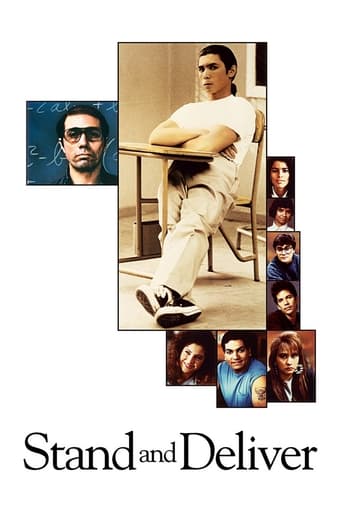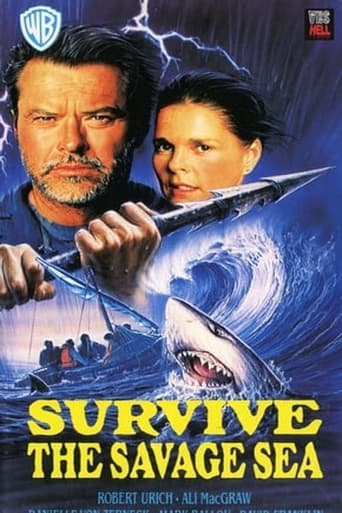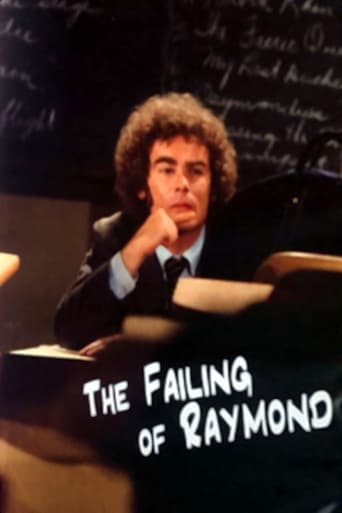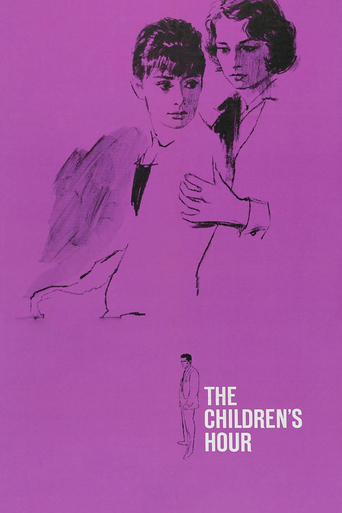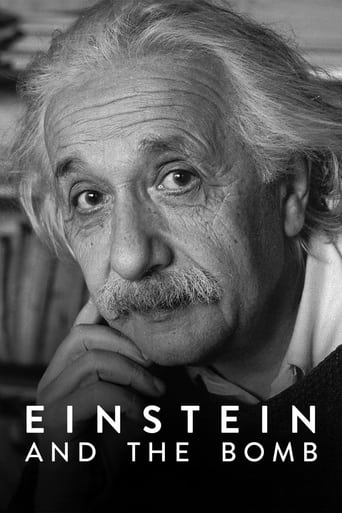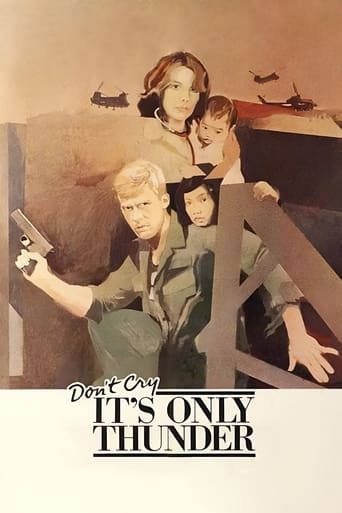Stand and Deliver (1988)
Jaime Escalante is a mathematics teacher in a school in a hispanic neighbourhood. Convinced that his students have potential, he adopts unconventional teaching methods to try and turn gang members and no-hopers into some of the country's top algebra and calculus students.
Watch Trailer
Cast
Similar titles


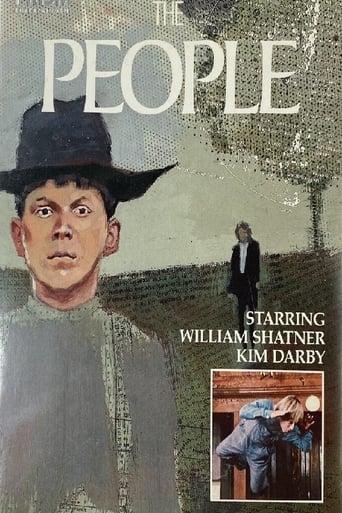
Reviews
To me, this movie is perfection.
When a movie has you begging for it to end not even half way through it's pure crap. We've all seen this movie and this characters millions of times, nothing new in it. Don't waste your time.
Very good movie overall, highly recommended. Most of the negative reviews don't have any merit and are all pollitically based. Give this movie a chance at least, and it might give you a different perspective.
An old-fashioned movie made with new-fashioned finesse.
Personally I had visions of Grandeur wanting to be an architect my chosen future profession. On the other hand the Math Department at Elmont Memorial High was only concerned with completing the curriculum on time before the state regent exams in June. Another words, rush or cram the material through and forget about getting the math right! My plans for my future were dashed and the dreams I had designing buildings were quashed. Geometry stood in my way like a brick wall. Barely made it through the year with a low passing grade. I wish my teacher was as enthusiastic as Jaime Escalante (Edward James Olmos) but then I wondered if I could keep up with his students and pass the AP Calculus exam with the extra ganas, (desire) provided by the colorful persistent instructor. Mr. Escalante or as he's known in his inner circle "Kemo" by his Latin students works extra hours before and after school in preparation for that big day. The story isn't only about the exam, but how each student has certain obstacles in their lives and balancing Calculus prep,regular school, family issues. Here we focus on one of the students Angel Guzman (Lou Diamond Phillips) who in the beginning was a typical East L.A. gang member running around town and getting harassed by the police, found his way in Kemo's class, (late as usual throughout the movie), prospered despite missing a day of class in a medical clinic accompanying his sickly Abuelita. Another student tells Kemo that he can make huge money driving a fork lift but the experienced Math teacher explains that in life you only see the turns but you don't see the road ahead! Another instance, a soft spoken bespectacled female Latin student who takes to the material in Kemo's class. Kemo feels she has a future in mathematics and industry. Our four eye sweety tells Kemo that her Dad is apposed to her attending college. Kemo takes his wife to her parents Mexican restaurant. Kemo promotes his daughter telling the stubborn Father she should go to college and pursue a career and not end up as a waitress in his establishment for the rest of her years. These 18 Latin students follow Kemo's road to success with some bumps in the road. Grade scores and cheating are questioned. Andy Garcia as the State representative questioned the grade scores and the classic confrontation as a ballistic Kemo threatened to beat the S--t out of the stunned Garcia. This movie wasn't sugarcoated and really showed the long hours and study needed to pass this intricate calculus exam. Kemo was demanding as he reiterated doing everything step by step. The Great inventor Thomas Edison once said,"One percent inspiration, Ninety-nine percent perspiration.
Any movie can be viewed a portal, a portal that can transport viewers to faraway places, alternate universes, or distant time periods. Although these movies started out as simple black and white projections, they have evolved into masterful cinematic experiences that defy the limits of the natural world. Today, a "good movie" typically boasts mind-blowing special effects, a deep plot line, well-known actors, or a combination of the three. These are just of few of the standards set by film-makers in the 21st century. However, I feel that it is worth recognizing films that were revolutionary in their time, not just films that live up to today's expectations. One of these films, "Stand and Deliver," is about a Calculus teacher at a local high school who turns a rag-tag group of seniors into excellent mathematicians. These students go on to take the AP Calculus exam, all earning passing scores. Although this movie is not impressive to modern-day standards, it is worth noting that at the time, passing an AP exam was very difficult, at any school. This simple, yet tremendous feat helps me appreciate the worth of the movie, despite it being outdated. Overall, "Stand and Deliver" is a likable movie because of its charismatic characters that are easy to relate to.Likable characters are important to a successful movie because they allow viewers to either relate to them or idolize them. In the case of "Stand and Deliver," there were both types of characters. Jaime Escalante, the teacher of the high school, was by no means a perfect teacher. Throughout the movie he made many mistakes, such as making a rude comment about a student's love life. He also had a heart attack just weeks before the students' exam. These downfalls show that Mr. Escalante is by no means a god or someone we are any greater or less than. He also showed his down-to-earth personality through his fun, charismatic teaching style. In one such instance Mr. Escalante created a simple algebra problem by replacing the variable "x" with the amount of "girlfriends" someone had. This did not only cause his students to like him, but the audience as well. In this sense, both parties develop a sense of respect towards him; it is very difficult for a teacher to educate and appeal to his/her students. Although Mr. Escalante is a likable main character, the supporting characters in "Stand and Deliver" demand viewers' affection as well.Likable supporting characters only add to the main character's charm because it shows how he/she affects them. For example, one of my favorite characters from the movie is a boy called Angel. Although Angel is involved with delinquent gang activities and smokes cigarettes, he shows viewers his soft interior when he is at home taking care of his sickly grandmother. On top of this, we later find out that Angel is an intellectual man who cares about his grades; although he doesn't want his friends to know this, he asks Mr. Escalante for extra textbooks so he can study wherever he is.Although movies can take us to amazing places and can let us travel with amazing heroes, but sometimes the best movies are the ones we can relate to. Although I have seen some exciting films, it's always nice to relax with one of the classics. "Stand and Deliver" is my favorite movie because it has likable characters that I can relate to. I hope reading this review will inspire you to watch the movie, as well as enjoy it as much as I did.
Despite the massive hurdles on his way to lead the pathetic students into the right track, the teacher, Mr. Escalante manages to reinvigorate the sense of esteem in them by teaching the hard subject of AP calculus, working day-in, day-out.The setting on which the plot is mainly based is Eastern Los Angeles Garfield High School, a place packed with students from the poor, deprived Hispanic minority led by a tough teacher who has no intention of backing down.Even at the opening, the audience begins to be fed with semiotic elements which signify the issue of stratification and deprivation in Los Angeles. "We're not a minority", that's one piece of large graffiti on a wall in a neighborhood filled with other elements of poverty, giving the initial hint to the viewer about the depiction of the plight and misery of a minority in the movie.The teacher is shown behind the roll as he cruises across the neighborhood, setting his eyes on elements of the lower-class life: a group of Latino construction workers on the back of a van, a couple of street vendors and a band of street performers crossing the road as they carry their instruments.Escalante is thrust into a class of extremely unruly children, who don't even bother stand up when he steps in the classroom. Interestingly, however, that is no shock to the teacher, as he seems to know very well how to handle them without resorting to violence while remaining completely coolheaded.Upon the first encounter, one students asks him if they can discuss "sex" in the class. "We could set sex for homework," Escalante quickly replies in a sarcastic manner, giving the students an impression of sharpness and biting humor.To highlight one major component of the Latinos' plight, the director chooses to focus upon the educational system and seeks to convey facts to the audience about how deep the social stratification and wide the gaps are in the American society when it comes to the right to equal education and opportunities.Garfield High School, indeed, the director implies, is an embodiment of decades-long discrimination against the Latino community, whose children are the primary target of injustice. But Escalante is there just to fight that up to the end. Of Hispanic origin himself, he seems to have deeply realized the graveness of the matter, which is why he puts the bar higher, much beyond the apparent capabilities of his students.The climax of the discrimination comes after the educational inspectors rule that the calculus test be rejected on the assumption that the participants had actually cheated in the exam, showing just how profound is the distrust in minorities even among the academics and the educated, who are supposed to put aside those biased notions and offer everyone the chance to move up the social ladder.Ironically enough, the director chooses the two inspectors from minorities, one African American, the other a Latino himself, to suggest that even the educated members of the minority groups are so strongly affected by the white supremacy, never realizing that what they do is indeed representing the predominant view that Hispanic children are inherently incapable."If it was Beverly Hills High School, they wouldn't have sent you to investigate," Escalante tells the inspectors, objecting to the mainstream attitude in the educational system. Escalante believes that if the same scores had been achieved by children from Beverley Hills, the system would have never questioned the results, because they are basically considered supreme and talented.The calculus test, from Escalante's viewpoint is a chance for the system to regain the trust of the Hispanic students, but the disapproval from the authorities makes that just a failure, disappointing the students and leaving them in a state of frustration after a months-long hard battle they fought to prove their aptitude.Still, the unyielding teacher rises again, taking the hands of the worn-out students and helping them to stand up for the cause once more. He calls them true dreamers. "Tomorrow you'll prove you're the champs," he tells them with vigor, valor and enthusiasm ahead of the second test.As the title suggests, the movie is the struggle of a man who never backs down in the face of hardships and obstacles, and sticks to his true mission of delivering the subject he's expected to convey to his students. But that's not the only thing he teaches them. The students learn calculus plus perseverance, something which has been missing in their lives by that time, due to the injustice imposed upon them.The dialog and characterization in the movie are both simple. There are no complicated characters and the language is that of the everyday life of a group of Latino students. To an extent, however, the plot is unpredictable, as one keeps wondering what will happen next, especially after the results of the first AP calculus tests are rejected by the Educational Testing Service.The music and the editing are smooth, with the costume and makeup design completely fitting the style of the era: loose shirts, young adults with newly grown mustache, and girls with hair-style representing the late 1970s. Together, those elements help with the viewer's full understanding of the theme and the context in which the story has developed.The closing scene of the movie comes as Escalante learns about the approval of the second test from the authorities. As he tries to overcome his over-excitement about the news, with a smile on his face, he leaves the principal's office. The camera shows him from behind as he walks away in the corridor, as if he's done with a tremendous mission and is determined to just embark on another journey to continue carrying the huge task on his shoulders somewhere else.
Stand and Deliver (1988) Genre: Drama Director: Ramon MenendezScreenwriter: Ramon Menendez, Tom Musca Music: Craig Safan Main actors: Edward James Olmos: Jaime Escalante Will Gotay: PanchoIngrid Ulio: Lupe Karla Montana: Claudio Camejo Vanessa Marquez: Ana Delgado Lou Diamond Phillips: Angel Guzman Synopsis:"Stand and Deliver" tells the story of a dedicated and passionate mathematics teacher who takes a class of mostly poor and ignorant students in a tough East LA high school in 1982 and transforms them in less than a year into professionals who have learned so much that 18 of them are able to pass a tough calculus exam. The exam is so hard that only 2 percent of students nationwide can pass it, and surprisingly, all the students of the class succeed to do this task. Jaime Escalante leaves a better paying job in business to teach at a very struggling school with a largely Hispanic student body, and puts in very long hours and commits his whole being to improving a school that needs him so much. Yet In addition to an unmotivated and undisciplined class, he also has to deal with parents reluctant to let their children pursue higher education. Then he starts teaching, using examples out of the everyday lives of his students, making them solve problems for themselves, claiming that the punishment for not working hard in class is to be kept out of the class. The students themselves are amazed that this strategy works and more amazed to find that they're expected to do 30 hours of homework a week and come in on Saturday mornings for extra classes. Escalante and his students also arrive early before school for special sessions. The students gradually come to realize that the only way they can escape their poverty- stricken situations is to improve intellectually. As a result, the class' academic achievements improve dramatically. Taking the AP Calculus exam in the spring of their senior year, these students are overjoyed to finish a wonderful year. After receiving their scores, they are so happy to find that they have all passed, something done by few in the state.Later that summer, a shocking accusation is made. The Educational Testing Service calls into question the validity of their scores when it is discovered that similarities between errors is too high. Outraged by this accusation, Escalante feels that the racial and economic status of the students has caused the ETS to doubt their intelligence. In order to prove their abilities to everyone, the students agree to take the test again at the end of the summer. With only a day to prepare, there is high stress to show that they can do what they are supposed to do. In the end, they all pass the exam again, showing they deserve their achievements.Main Characters: Jaime Escalante (Edward James Olmos): A hardworking Bolivian IT professional and then a math teacher who prepares his students for the AP Calculus test. He brings his students from doing introductory math to algebra in the first school year. Then he decides to teach them calculus. Pancho (Will Gotay): A student who experiences much difficulty with math because of his limited study skills.Lupe (Ingrid Ulio) : A student who must take care of her mother's children while also having difficulty with school work. She refuses to be Pancho's girlfriend. Claudia Camejo (Karla Montana): The beauty of the class. Everyone wants to be with her, and her life is constantly made fun of by Mr. Escalante. She takes the calculus classes to prove that, unlike her mother, she can depend on her own skills. Ana Delgado (Vanessa Marquez) : A shy, quiet girl attending Garfield High School who excels at math. She intends to go to college and become a doctor, but is discouraged by her father, who wants her to support his restaurant. Angel Guzman (Lou Diamond Phillips): A troublesome, but brilliant, boy who must help his grandmother, because he does not live with his parents. He struggles with math and has difficulty studying and hanging out with his delinquent friends. He wants to learn but does not want his peers to know that he wants to learn. Conclusion: The American public school system could be improved in many places. Too often their public schools are places where instead of learning how to respect others and learn to think, young adults learn how to victimize others (or living in fear) and endure the fact that being smart isn't' desirable. Garfield High School is one of these schools. But was Jaime Escalante a true improvement in this system or a model of change? Or was he just one of a kind? Was he an example of how change happens in public schools? Or was he an example for showing why education will not improve, despite the best efforts of the best teachers? Keeping in mind the questions asked above, there comes other more difficult ones to answer. Are there thousands of charismatic, highly-skilled, well trained, and experienced school teachers ready to imitate Escalante in similar conditions? Are there teachers who are willing to work 60 hours a week to give their all with study sessions before school and visit student's homes? Or are they able to give and work to the point of excluding their own selves and families and to the point of ignoring their health? I wonder if holding up Jaime Escalante as the ideal teacher poses more problems than rewards. Not every teacher can be or is expected to be charismatic and passionate, expertly trained in their subject, culturally sensitive and knowledgeable, with infinite patience and compassion. Dadkhah
